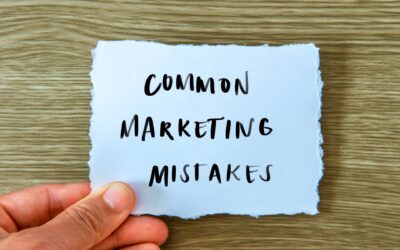Every law firm needs an e-newsletter. Whether you are a sole practitioner or a small or growing firm an e-newsletter helps keep your firm top of mind for current and potential clients and referrers. An e-newsletter makes it easy to communicate regularly with the people in your network and, ultimately, get more work. Even firms that don’t want to grow need a newsletter, in order to seek better work or better clients. So are you ready to get started?
What you need to get started
To get your law firm’s e-newsletter started there are four main things you need to do. First, you need some content or a plan to create it – this is often the biggest hurdle faced by law firms when creating an e-newsletter.
Some firms prefer to write their newsletter in-house while others prefer to outsource the content creation to professional legal marketing companies (like Lift Legal) who can co-ordinate all of the moving parts needed to create your e-newsletter (more on that later).
Regardless of who produces the newsletter content, every firm needs a marketing database to send an effective e-newsletter. Your database contains the names and email addresses of clients and contacts you want to receive your newsletter. We have written about this before and our article How to build your law firm client database and why you should is a good place to start if you are unsure how to get your database together.
Third, you need an e-newsletter delivery service. A delivery service makes sending your e-newsletter easy and, depending on the service you choose, can help design and create your newsletter, track your campaign progress and provide useful reports and analytics.
You should also have a publishing schedule planned in advance. It’s worth the time to put this in place early, and can help you stick to your publishing goals.
Once your firm’s e-newsletter is up and running, it also pays to review your progress regularly. Celebrate your success and find new opportunities to take your firm’s e-newsletter even further.
Planning your e-newsletter
Working out how often to publish your firm’s e-newsletter is an important step. Don’t skip this crucial planning stage thinking that it will all just work itself out – you need to have a plan and stick to it. If a monthly newsletter is too much to begin with, perhaps start with publishing quarterly. You might need to experiment a little to find the best day, time and frequency to publish, but don’t spend too long in the testing phase. The important thing is to get started and then establish a consistent schedule.
Establishing a consistent schedule will benefit both you and your readers. People like consistency. Not only will your readers enjoy the regularity, the people writing your content will also appreciate a predictable routine.
The key benefit of publishing regularly and often is that your audience sees your firm name at regular intervals. They are reminded of who you are and what you do. And therefore they are more likely to remember your firm when they or someone they know needs a lawyer. Sending quarterly newsletters for that reason just don’t cut the mustard!
Creating your content
As well as keeping your firm top of mind for your readers, you also want to create content that is valuable to them. Creating valuable content builds trust and demonstrates not only your expertise, but also your understanding of issues that are important to your readers.
In today’s competitive legal environment, people are looking for information that is useful to them. Having valuable, easily accessible articles on topics relevant to your readers makes your newsletter easy to recommend and share. With this in mind, make sure your articles use plain English, avoid legal jargon and keep things light. That’s not to say you can’t do articles on complex legal issues, but make sure they are written in a way your audience finds accessible.
There are many different types of content, each law firm is unique and some of the content in your e-newsletter should reflect this. In general terms the content should be something which your readers will find interesting and valuable, like information on legal topics that might affect them. Newsy updates on things that are happening in the firm – fundraising efforts, community involvement, new staff, promotions etc are also of interest to your readers. Apart from the value to your readers in providing legal updates the content in your e-newsletter is also a great opportunity to create a personal connection, firm news and photos of events will often be the most popular content included in your e-newsletter.
Building your audience
You probably already have quite a number of contacts and email addresses. These could include past and current clients, referrers and others in your personal or professional network. To begin building your e-newsletter audience, you need to set up a marketing database of all these contacts. It can be as simple as a spreadsheet with columns recording the name and email address of each person. See our article ‘Build your law firm’s contact database to get your marketing going’ for more on setting up your database and using the information you already have.
In addition to harvesting the information your firm already has, you can build your audience by prompting visitors to your website to subscribe to your newsletter. Another possibility is putting a ‘call to action’ button on your Facebook page asking visitors to sign up.
Whether you gather contact details through your professional network or by encouraging subscription, don’t forget that it is important to give people the opportunity to consent to receiving your firm’s e-newsletter. You also need to give them the option to unsubscribe if they wish. Of course, if you’re providing valuable and relevant content, that shouldn’t happen too often.
Delivering your e-newsletter and tracking your progress
Once you have your content ready to go and your marketing database set up, it’s time to create and send your first e-newsletter. To do this, you will need an e-newsletter delivery service. There are many email service providers available like Mailchimp, AWeber, Campaign Monitor or Constant Contact to name a few. You should explore what works best for your firm as some providers offer more bells and whistles than others. Using a delivery service lets you easily send a personalised copy of your newsletter to all or part of your marketing database. It’s simple, efficient and cost-effective. Depending on the delivery service you use, you will usually have access to email/newsletter samples and templates and other resources, making your task even easier.
Using a delivery service also has the benefit of providing analytics. It can track your success and help you to improve the efficiency and effectiveness of your e-newsletter. Want to know the best time or day to send your newsletter? Do more people open your newsletter if your send it at 9am or 11am? Which article in your newsletter was most popular? These questions and more can be explored with the analytics a delivery service can provide. We recommend reviewing your newsletter regularly, and analytics can help with that. Armed with new insights, you can soon be on your way to an even better e-newsletter.
We hope that this article has encouraged you to take the next step towards creating your firm’s own e-newsletter. If you’d like to know more about how e-newsletters can benefit your law firm, please take a look here for more helpful articles or get in touch with us if you’d like to chat about anything you’ve read.
About the author

Peter Heazlewood
Peter Heazlewood is a management and marketing consultant, he specialises in helping law firms develop their practices using business planning marketing and performance reporting techniques refined in his own successful law firm. Peter lives in Sydney with his wife and is the father of five adult children.




